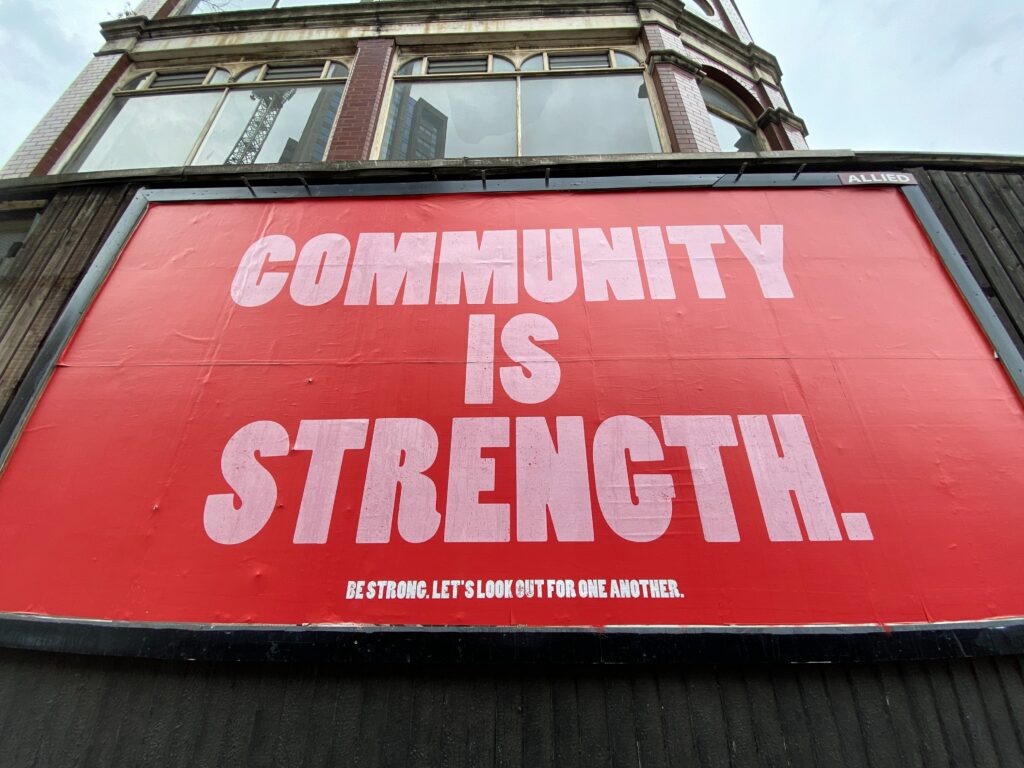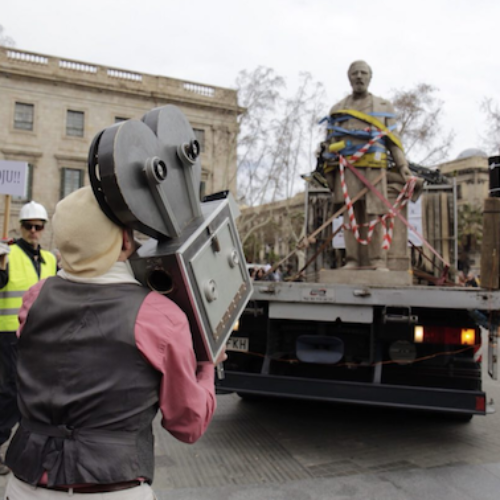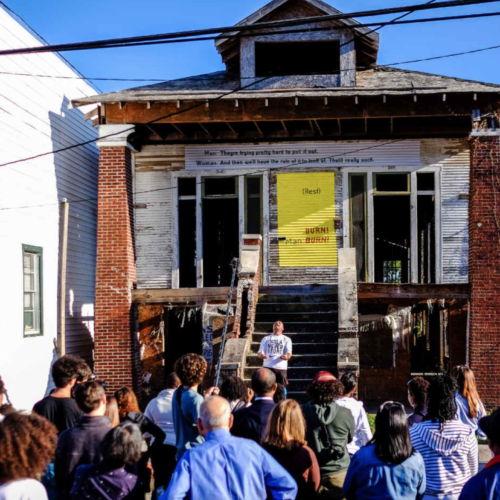Community organising is an essential ingredient in any movement seeking to build a more just and sustainable society. In an era in which the civic space is closing, radical right-wing ideology is becoming more dominant in public discourse, and social solidarity is breaking down, community organising offers a strategic approach to guide grassroots, local-leader-driven change in marginalised communities.

Community organising is a long-term process of transforming civil society by building people’s power to lead change towards a shared vision. Organising enables movements to become locally relevant, shift power dynamics, and broaden participation by engaging citizens who may not perceive themselves as “activists” or “organisers”. In Europe, the community organising movement is growing and it has already achieved important victories on climate, authoritarianism and housing rights, but there are still challenges that need to be overcome to become even more effective and impactful. Here are eight common challenges we have identified:
1. Fatigue and Burnout
The risk of fatigue and burnout is already high among activists, and even higher among community organisers. As organising is often based on personal values, organisers may be so committed to making the world better and feel the sense of urgency to act on the current crises that they may be at risk of blurring the lines between personal and professional lives, not taking enough breaks, not resting and overworking. In particular, organising involves building relationships with people in communities who are affected and often distressed by different issues. The process of consistently engaging community members in conversations, one-to-ones and group meetings while trying to move them towards collective actions requires high levels of emotional intelligence, and a strong capacity to absorb people’s energy and emotions. This can bring many organisers into relational fatigue and burnout preventing them from staying engaged in this work for the long term. Additional risk factors are the conditions in which organisers work in many organisations, often underpaid and overloaded with work until they burn out. To overcome this challenge we should see the health of organisers interconnected to the health of organisations and societies, and invest in sustainable and regenerative organising practices that protect and regenerate the health and well being of organisers.

2. Confusion about the role of “organisers”
In Europe the perception of who “organisers” are and what they do may be still unclear. Organisers may sometimes be associated with activists or volunteers who do organising in their “free time” alongside their “real” jobs. It may be assumed that organising does not require professional skills and expertise and anyone can do it. While it is true that many organisers do it on a voluntary basis, it is important to recognise that organising requires professional skills and experience that need to be valued and paid adequately. This confusion about the role, results in a lack of recognition of organising as an area of expertise and in limited opportunities for organisers to be formally trained and access relevant professional opportunities. To overcome this obstacle there needs to be efforts to shift the perception of the role of organisers, the inclusion of “organising courses” in educational and training institutions and the professionalisation of the role of “organiser” in the civil society and political sector. More clarity on the role would enable civil society organisations or movements to recognise the value of organising work and open more positions to hire professional “organisers”.

3. Fragmentation of movements
Organisers and activists often struggle to collaborate across movements and organisations despite having a shared vision and goals, due to challenges in reconciling the differences in the strategic approaches to change, resulting in missed opportunities to build more powerful movements. Some movements may believe in taking radical direct actions to disrupt the target sometimes on behalf of the people affected by social injustice and create structures that prefigure the changes they want to see. Others may prefer more of an organising approach by investing in long term efforts to empower the affected communities to fight on their own behalf against social injustice and build broad-based movements that can win structural changes. These different approaches may result also in different strategies towards formal structures of power like government institutions. Some movements prioritise a confrontational approach towards the government. Whereas others may see it as strategic to build power and influence on different fronts including engaging in dialogue, cooperation, and working within government institutions. These differences can create fragmentation, lack of coordination and limit the potential to build more powerful movements. A way to overcome this obstacle could be to create spaces for joint political education and cooperation across movements where they could build alliances and solidarity, analyse and build power and strategise together towards a shared vision.

4. Lack of organising capacity and ineffective capacity transfer
Since organising requires professional skills, and experience, the success and sustainability of movements, organisations relies on the quality of its organisers and the ability to build, maintain and transfer organising capacity. Currently there are not many educational or training institutions training organisers in Europe therefore it is not easy to find people formally trained on this type of knowledge and skills. Among the competencies of an organiser there are the ability to listen and engage in one-to-one conversations, facilitate group processes of discussions and decision-making, synthesize different stories in a shared narrative and vision, cut and link issues in ways that build unity, create structures that develop people’s leadership, analyse and build power, develop strategies that shifts power, enable collective actions and campaigns. Without effective spaces and processes to build and transfer organising capacity, organising capacity often gets lost when experienced organisers leave, migrate, get new jobs, start families. Also in communities, when community leaders leave or burn out, they leave a capacity gap that affects the organising process. This obstacle can be overcome by creating effective systems for developing and transferring organising capacity from more experienced to new organisers, sharing power so that several people would have the chance to develop their leadership skills and play the “organiser” role within a movement or an organisation.

5. Political Apathy
Organisers often find themselves trying to engage citizens who are apathetic towards addressing socio-political issues, and who have limited time, energy and belief in their own power to be able to organise. Most citizens may be aware of the issues and even care about them in some cases, but they often don’t believe that they have the power to influence them, or they are too tired from their jobs within the Capitalist economy that they prefer to evade through entertainment rather than taking action. Apathetic citizens may come from a background where they have little or no experience of understanding people’s power, being in a position of power or influencing power structures. Many may prefer staying away from engaging in power building and influencing processes as they may perceive political power as associated with corruption and misuse of power. This challenge could be overcome by building relationships with “apathetic citizens” and making them feel part of a community where they feel valued and empowered to play a role in driving change. This makes the task of organisers especially crucial as it focuses on relationship building, community building and sharing stories of individuals and communities that have succeeded in making change to inspire citizens to overcome apathy, regain their sense of agency and engage in collective actions.

6. Deep Inclusion for Deep Representation
Organising tends to be easier in communities that already have something else in common besides the issues they want to address – such as geographical location, language, culture or background and not internally divided across identity lines. This may result in organising working more smoothly when done within the same social groups (e.g. neighborhood, women, youth, people of color, LGBTQI+ people, Roma people) and being more challenging when done with diverse communities with intersections of identities. Organisers working with diverse communities need to take extra measures to manage group dynamics and to ensure deep inclusion and deep representation of minorities. Trust building and intersectional involvement in diverse communities is a slower process, but it also results in deeper societal and cultural transformations. A way to overcome this obstacle would be to create safe and inclusive communities where everyone is welcome, to facilitate group processes with a focus on common issues, and address individual differences when they arise. Also, it would help to create spaces for organisers who work with diverse communities to share experiences and good practices on ways that ensure inclusion and representation.

7. Linking local to transnational organising
One of the challenges in the political context of Europe is that organisers tend to focus mostly on local organising in their communities or country, and may find it challenging to link their local struggle at transnational level to broader issues that can make changes at European and international levels. This may be connected to a limited capacity and infrastructure to organise transnationally and it would contribute to the fragmentation of movements and groups. A way to overcome this issue would be to create spaces and structures to connect groups, movements and organisations from different countries working on similar issues to share and build capacity to link local to transnational issues, build solidarity and facilitating processes of forming shared visions, narratives, and joint strategies for transnational organising campaigns.

8. Lack of Funding
Community organisers rarely have funds and heavily rely on donations and grants from institutions and individual donors to support their work with communities. Raising funds from institutions or individuals that are suitable to enable the implementation of organising processes and practices seems to be particularly challenging. This may be due to the nature of organising that is not a quick solution, but a long-term, organic and sustainable approach that radically transforms civil society to build power from within. The organising process cannot be rushed because it involves building relationships and trust with communities, developing their leadership and engaging people in a movement beyond a one-off event. Institutional funding opportunities tend to not take into consideration the specificity of organising practices and may end up being too short term, activity-focused, with low flexibility, impossibility to hire and adequately pay professional organisers, and expecting quick impact-level results. This may result in organising projects that are rushed or interrupted too early, unable to respond to the emerging needs from the context, and run by underpaid or volunteer organisers, who also juggle their time with writing grant proposals and fulfilling reporting requirements. A way to overcome these obstacles would be to create funding frameworks that are long-term, flexible, invest in paying organisers, and measure progress in innovative ways. On the other hand, individual donors or members who pay fees could potentially provide a more flexible source of funding for organising. In many contexts though – especially in Eastern Europe – individual donors may be more willing to contribute for activities, events or campaigns, rather than to pay organisers. This may also be due to the limited awareness of civic and participatory processes, and to the fact that organising work is not always visible, which may create the perception that things are happening by themselves in the community. This constitutes an obstacle to fund the very core element of organising work. Donors who wish to support organising, need to value and support the work of organisers in making movements and organisations more effective in engaging communities and influencing sustainable change.

In the fight for social and environmental justice, organising can play a key role as a strategy for European movements and organisations to build people power, solidarity and sustainability. Unleashing the power of organising requires a greater investment in creating enabling environments, developing organising capacity, sharing experiences, building solidarity across movements, and ensuring the sustainability of the organising sector. One of the spaces where European movements, organisations, and groups can connect and address some of these obstacles together is the European Community Organizing Network (ECON).



